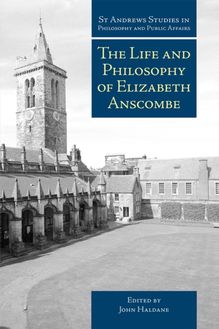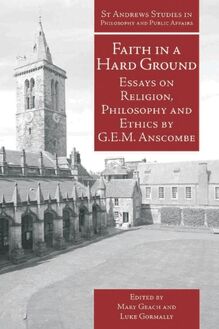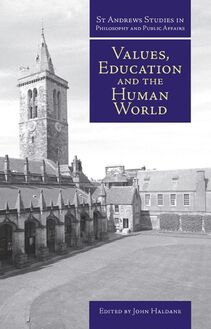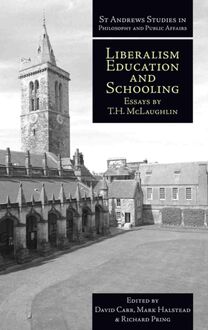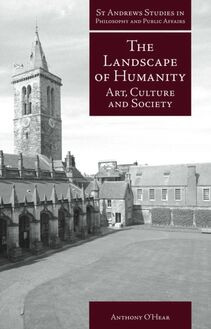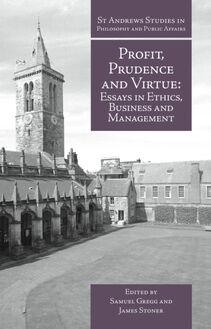-
 Univers
Univers
-
 Ebooks
Ebooks
-
 Livres audio
Livres audio
-
 Presse
Presse
-
 Podcasts
Podcasts
-
 BD
BD
-
 Documents
Documents
-
- Cours
- Révisions
- Ressources pédagogiques
- Sciences de l’éducation
- Manuels scolaires
- Langues
- Travaux de classe
- Annales de BEP
- Etudes supérieures
- Maternelle et primaire
- Fiches de lecture
- Orientation scolaire
- Méthodologie
- Corrigés de devoir
- Annales d’examens et concours
- Annales du bac
- Annales du brevet
- Rapports de stage
La lecture à portée de main
Vous pourrez modifier la taille du texte de cet ouvrage
Découvre YouScribe en t'inscrivant gratuitement
Je m'inscrisDécouvre YouScribe en t'inscrivant gratuitement
Je m'inscrisEn savoir plus
Vous pourrez modifier la taille du texte de cet ouvrage
En savoir plus

Description
Sujets
Informations
| Publié par | Andrews UK |
| Date de parution | 27 mars 2017 |
| Nombre de lectures | 0 |
| EAN13 | 9781845402792 |
| Langue | English |
Informations légales : prix de location à la page 0,0674€. Cette information est donnée uniquement à titre indicatif conformément à la législation en vigueur.
Extrait
c
Title Page
LIBERALISM, EDUCATION AND SCHOOLING
Essays by T.H. McLaughlin
Edited by David Carr, Mark Halstead and Richard Pring
Title Page Verso
Copyright © This collection Imprint Academic, 2008
The moral rights of the authors have been asserted.
No part of any contribution may be reproduced in any form without permission, except for the quotation of brief passages in criticism and discussion.
Originally published in the UK by Imprint Academic
PO Box 200, Exeter EX5 5YX, UK
Originally published in the USA by Imprint Academic
Philosophy Documentation Center
PO Box 7147, Charlottesville, VA 22906-7147, USA
Cover Photograph:
St Salvator’s Quadrangle, St Andrews by Peter Adamson from the University of St Andrews collection
Preface: Professor Terence H. McLaughlin (1949–2006)
As the editors explain in the following introduction to this collection of essays by the late Terence McLaughlin, he was a well known, greatly liked and much respected figure within philosophy of education in Great Britain. He also lectured and published further afield and his work is widely referred to in the literature on moral and religious education in the context of a liberal society. Terry McLaughlin’s early death was a loss to his many friends and to the subject, and I am grateful to David Carr, Mark Halstead and Richard Pring for their work in gathering, selecting, ordering and introducing this set of essays. Terry McLaughlin had spoken of bringing together some of his writings either in the form of a collection, or integrated into a monograph, but in the event he died before achieving this. The present volume does not try to guess at what the content of that book might have been, but is instead a selection made by fellow scholars of high distinction judging what is of particular interest and enduring relevance in McLaughlin’s academic writings on educational topics.
It is testimony both to the affection felt for Terry McLaughlin and to the high estimation of his work that three leaders in the field of educational studies in Britain have come together to collaborate on this project. David Carr is Professor of Philosophy of Education in the University of Edinburgh; Mark Halstead is Professor of Education, and Head of the Department of Community & International Education at the University of Huddersfield; and Richard Pring is Emeritus Professor of Educational Studies in the University of Oxford and Lead Director of the Nuffield Review of 14–19 Education and Training in England and Wales. I am particularly grateful to Professor Carr for leading this project and for the considerable time he has given to it; also for the privilege of having the opportunity to publish this material in St Andrews Studies in Philosophy and Public Affairs . Thanks are due also to Silvia Jonas and to Anthony Freeman for assistance in the preparation of the text.
John Haldane
General Editor
Acknowledgements
The following chapters originated as essays in journals or books. The editors of this collection are grateful to the publishers and editors of these original sources for permission to reprint those essays in the present volume: publications, publishers and copyright holders are indicated in the following list corresponding to the present chapter order.
1. ‘Philosophy and Educational Policy: Possibilities, Tensions and Tasks’ Journal of Educational Policy Vol 15 No 4, 2000. pp 441–457. © 2000 Taylor & Francis Ltd.
2. ‘Education, Philosophy and the Comparative Perspective’ Comparative Education Vol 40 No 4, 2004. pp 471–483. © 2004 Taylor & Francis Ltd.
3. ‘Education of the Whole Child?’ in Ron Best (Ed) Education, Spirituality and the Whole Child (London, Cassell, 1996) pp. 9–19. © Continuum.
4. ‘Beyond the Reflective Teacher’ Educational Philosophy and Theory Vol 31 No 1, 1999, pp 9–25 © Philosophy of Education Society of Australasia.
5. ‘National Identity and the Aims of Education’ Socialiniai Mokslai: Edukologija , Vol. 5, No. 1, 1996, pp. 7–14. © T.H. McLaughlin.
6. ‘School Choice and Public Education in a Liberal Democratic Society’, American Journal of Education Vol 111, No 4, 2005, pp 442–463. © The University of Chicago.
7. ‘Citizenship, Diversity and Education: a philosophical perspective’ Journal of Moral Education Vol 21 No 3, 1992, pp 235–250. © 1992 Taylor & Francis Ltd.
8. ‘The Burdens and Dilemmas of Common Schooling’ in Kevin McDonough and Walter Feinberg (Eds) Citizenship and Education in Liberal-Democratic Societies. Teaching for Cosmopolitan Values and Collective Identities (Oxford, University Press, 2003) pp 121–156. © T.H. McLaughlin.
9. ‘The Ethics of Separate Schools’ in Mal Leicester and Monica Taylor (Eds) Ethics, Ethnicity and Education (London, Kogan Page, 1992) pp 114–136. © Cengage Learning.
10. ‘Distinctiveness and the Catholic School: Balanced Judgement and the Temptations of Commonality’ in James C Conroy (Ed) Catholic Education: Inside-Out Outside-In (Dublin, Veritas, 1999) pp 65–87. © T.H. McLaughlin.
11. ‘Philosophy, Values and Schooling: Principles and Predicaments of Teacher Example’ in William Aiken and John Haldane (eds) Philosophy and its Public Role. Essays in Ethics, Politics, Society and Culture . St Andrews Studies in Philosophy and Public Affairs (Exeter, UK and Charlottesville, USA, Imprint Academic, 2004) pp 69–83. © Imprint Academic.
12. ‘Education, Spirituality and the Common School’ in David Carr and John Haldane (Eds) Spirituality, Philosophy and Education (London, RoutledgeFalmer, 2003) pp 185–199. © T.H. McLaughlin.
13. ‘Sex Education, Moral Controversy and the Common School’ in Michael J. Reiss and Shaikh Abdul Mabud (Eds) Sex, Education and Religion (Cambridge: The Islamic Academy, 1998) pp 186–224. © The Islamic Academy.
14. ‘Wittgenstein, Education and Religion’ Studies in Philosophy and Education Vol 14 Nos 2–3, 1995, pp 295–311. © Kluwer Academic publishers.
15. ‘Israel Scheffler on Religion, Reason and Education, Studies in Philosophy and Education , Vol 16, Nos 1–2, 1997, pp 201–223. © Kluwer Academic publishers.
Introduction: David Carr, Mark Halstead & Richard Pring
By the time of his premature death in 2006, Professor Terry McLaughlin of the University of London Institute of Education, Fellow of St Edmund’s College Cambridge and formerly senior lecturer in the University of Cambridge Department of Education, was one of the most widely regarded and influential philosophers of education of his generation. Indeed, Terry McLaughlin was deeply respected and admired by friends, colleagues and students, and all were alike devastated by his untimely demise. At the same time, none of this widespread respect and affection was bought at the price of any academic or intellectual compromise. Professor McLaughlin was a scholar of the highest intellectual integrity who was aware that the interests of clarity and truth could not be served without serious critical confrontation with confusion and falsehood. Intellectually he was as tough-minded as they come and did not suffer folly at all gladly—though the patience and charity he showed towards any and all victims of folly and confusion was apparently inexhaustible. At all events, in the course of an all too short career, his contribution to the clarification of some of the deepest and most vexed conceptual issues of contemporary professional educational policy and practice may be considered significant and lasting. The present editors therefore hope that this collection of fifteen of McLaughlin’s finest and most influential essays may serve to indicate—without need for further advocacy—something of the valuable academic legacy of a scholar of impressive ability and intellect, absolute integrity and matchless decency, kindness and generosity.
In this short introduction to Terry McLaughlin’s work, however, we should perhaps say a little about the personal circumstances that shaped that work. Terry was born in 1949 into a working class family and like other children of his generation and social background he had to undergo the trauma of the British ‘11+’ examination under a deeply divisive selective education system established in the wake of the 1944 Education Act, and—like may other working class children of his generation—he failed this notoriously unequal test. The fact that the 11+ and the selective system of educational provision that it entrained was unjust was by the nineteen sixties widely recognized by educational professionals and policy makers, and over the course of that decade this system was largely (although never entirely) dismantled in favour of a more egalitarian ‘comprehensive’ system of secondary e ducation. I t i s p ossible that Terry McLaughlin’s lifelong professional commitment to an ideal of common schooling reflected the deep agreement of one gifted 11+ survivor with the broadly egalitarian drift of comprehensive education. Terry McLaughlin’s own educational experiences would have left him in no doubt of the social and moral damage that a selective system could do in foreclosing any and all possible avenues of personal, social and professional development and advancement for large numbers of able as well as less able or privileged young people. But not even the casual reader of McLaughlin could fail to appreciate his reservations about common schooling—or, at any rate, his recognition of the dangers inherent in any aspiration to a common educational experience for all that might ride roughshod over individually significant differences. In particular, as a religious believer, McLaughlin was clearly aware that any thoroughgoing liberal ideal of common schooling would inevitably have to avoid any and all complicity with what he also took to be humanly significan
-
 Univers
Univers
-
 Ebooks
Ebooks
-
 Livres audio
Livres audio
-
 Presse
Presse
-
 Podcasts
Podcasts
-
 BD
BD
-
 Documents
Documents
-
Jeunesse
-
Littérature
-
Ressources professionnelles
-
Santé et bien-être
-
Savoirs
-
Education
-
Loisirs et hobbies
-
Art, musique et cinéma
-
Actualité et débat de société
-
Jeunesse
-
Littérature
-
Ressources professionnelles
-
Santé et bien-être
-
Savoirs
-
Education
-
Loisirs et hobbies
-
Art, musique et cinéma
-
Actualité et débat de société
-
Actualités
-
Lifestyle
-
Presse jeunesse
-
Presse professionnelle
-
Pratique
-
Presse sportive
-
Presse internationale
-
Culture & Médias
-
Action et Aventures
-
Science-fiction et Fantasy
-
Société
-
Jeunesse
-
Littérature
-
Ressources professionnelles
-
Santé et bien-être
-
Savoirs
-
Education
-
Loisirs et hobbies
-
Art, musique et cinéma
-
Actualité et débat de société
- Cours
- Révisions
- Ressources pédagogiques
- Sciences de l’éducation
- Manuels scolaires
- Langues
- Travaux de classe
- Annales de BEP
- Etudes supérieures
- Maternelle et primaire
- Fiches de lecture
- Orientation scolaire
- Méthodologie
- Corrigés de devoir
- Annales d’examens et concours
- Annales du bac
- Annales du brevet
- Rapports de stage
